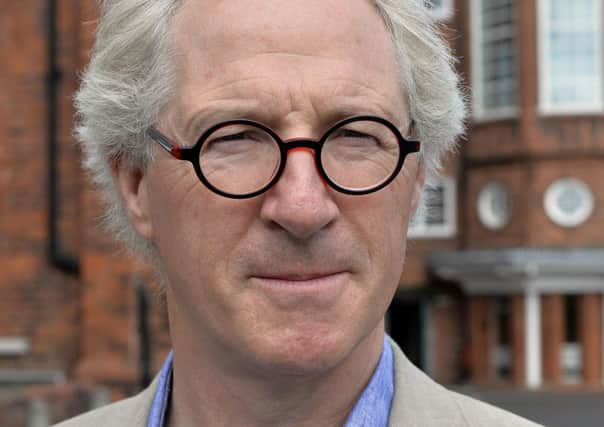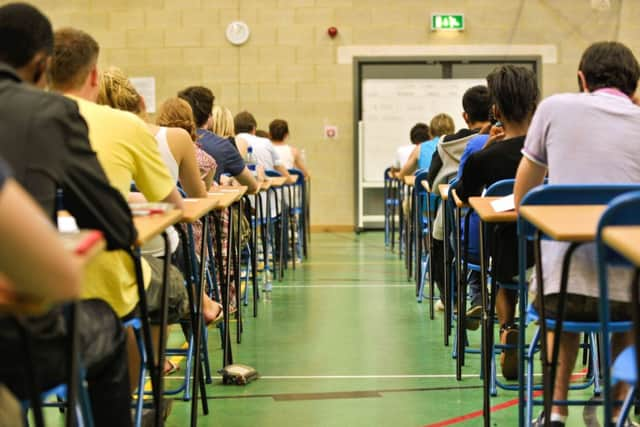Row over ‘gaming’ of exam system


Jonathan Taylor, head at the independent Bootham School in York, has rejected an Ofqual report which claimed teachers were gaming the system to boost grades.
The regulator has warned that the process of contesting GCSE and A-level grades was meant for a more innocent era and would now be redesigned.
Advertisement
Hide AdAdvertisement
Hide AdHowever this has sparked a strong response from both Mr Taylor and the Association of School and College Leaders (ASCL).


Mr Taylor said: “If these appeals were not justified they would not result in grades being changed. We appeal because we simply do not have confidence in the system because of the bad practice we see in marking - which at times I would say has been disgraceful.You only have to see this once to lose confidence in the system and we have a duty to our pupils if we think they have been given the wrong grade.”
Mr Taylor said he believed more schools would appeal if they had the time and resources to do it.
The ASCL has also rejected the regulator’s accusations and said that Ofqual must recognise the “enormous pressure” that schools and teenagers are under from the current accountability measures – such as school league tables – to get C grades.
Advertisement
Hide AdAdvertisement
Hide AdIn its report, Ofqual said that evidence suggests an increase in appeals against results, particularly those that are within one or two marks of key grade boundaries –such as C/D at GCSE and A/B at A-level – and that headteachers have described the system as “a one-way bet”.
It also found that examiners dealing with appeals may be looking for extra marks to award to students as they are conscious that the final result could have a major impact on a youngster’s future.
Chief regulator Glenys Stacey said the current appeals system was “not good enough” and announced that Ofqual would be conducting a “fundamental redesign” of the process in a bid to make it fairer and more transparent.
In a statement, ASCL said: “Today’s report from Ofqual is a step in the right direction to further improving the quality of marking. Therefore suggestions today that teachers are ‘gaming’ the appeal system are unhelpful and inaccurate.”
Advertisement
Hide AdAdvertisement
Hide AdThe union’s general secretary, Brian Lightman said: “Where students are one or two marks short and schools think that there might be a chance of them being upgraded, they will appeal. After all, it is a school’s duty to help students get the best grade by asking for a second opinion.
“Schools are not ‘gaming’ the system, but acting in the best interests of young people and it is vital that Ofqual recognises this and acts accordingly.”
He added that ASCL recognises the appeals system needs changing, but said there was disappointment that the report gave no indication of the importance of engaging with school leaders on any proposed alterations.
Ofqual announced a review of the exams marking system last year amid growing concerns that it was not up to scratch.
Advertisement
Hide AdAdvertisement
Hide AdIts final report concluded that the overall quality of GCSE and A-level marking is good. Ms Stacey said the regulator had found that in general, marking was “robust” with a “remarkable amount of quality control”.
But she added that their review had identified concerns about the processes that allow schools and teachers to appeal against pupils’ results.
She described it as “a labyrinthine system, perhaps designed in a more innocent era”.
Figures show that 2.3 per cent of exam papers were sent back for appeal last year, compared to one per cent in 2009 and 1.9 per cent in 2012. The regulator said some teachers had admitted using the system speculatively.